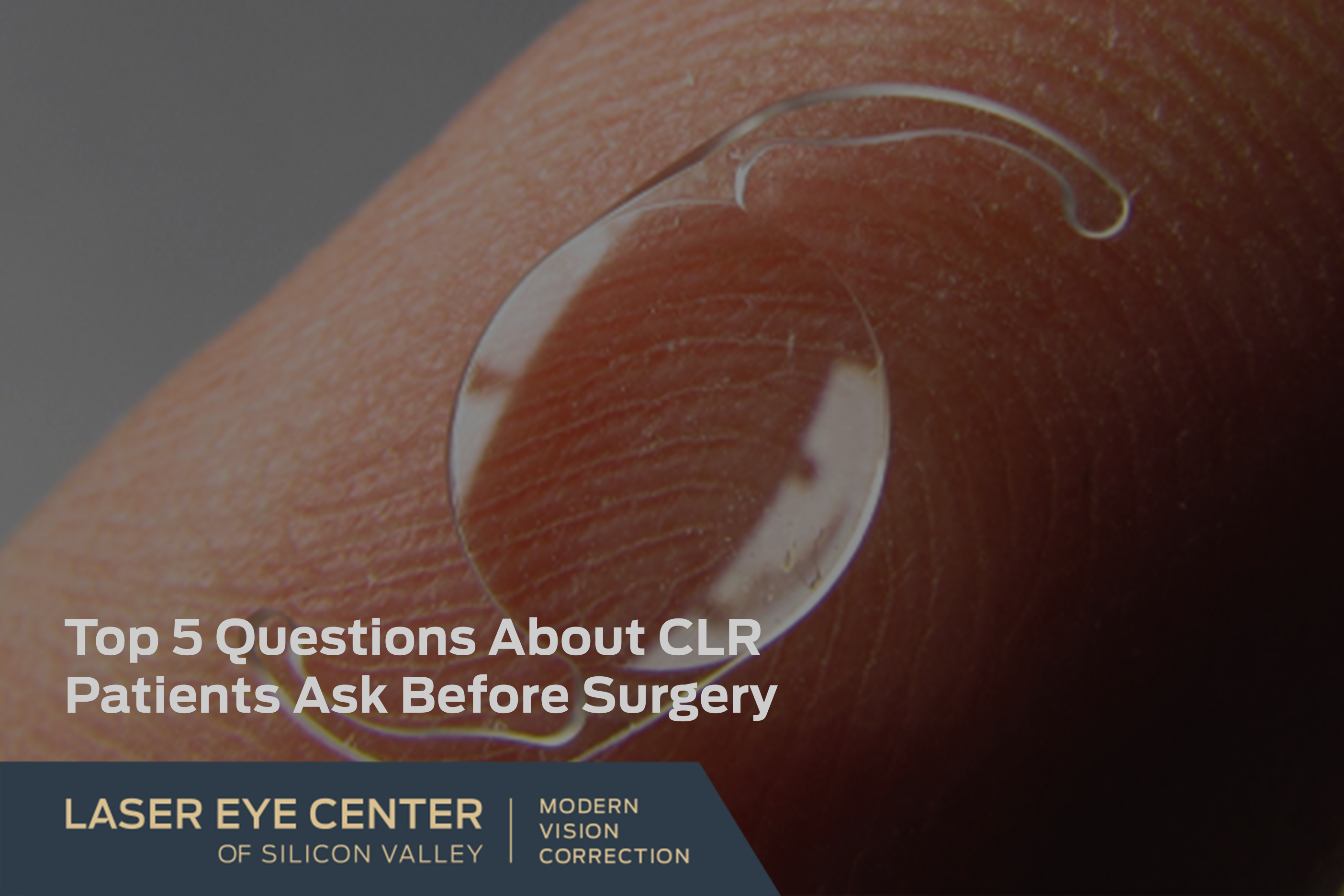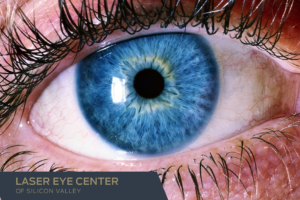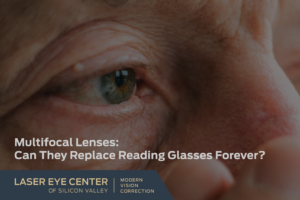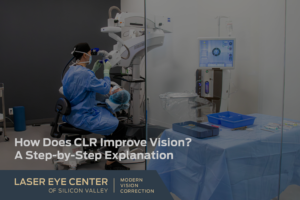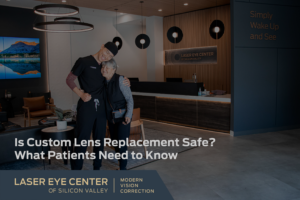Custom Lens Replacement (CLR) is a life-changing procedure that offers patients freedom from glasses and contacts by replacing the eye’s natural lens with a custom lens tailored to their unique vision needs. However, with any surgery, there are common questions and concerns. Whether you’re considering CLR or just starting to research, this article answers the top 5 questions patients ask before surgery.
Is CLR Painful?
One of the most common concerns patients have before undergoing CLR surgery is whether it will be painful. The thought of surgery on the eyes can trigger anxiety, but Dr. Sudhinder Koushik, a refractive surgeon at Laser Eye Center Silicon Valley, reassures patients that pain is not a concern.
“The procedure is virtually pain-free,” Dr. Koushik explains. “We thoroughly numb the eye, and we also provide medication to help you relax. I speak with you throughout the process, ensuring you feel comfortable and calm.”
The surgery itself involves no pain due to the numbing of the eye, and the gentle, careful approach of the surgeon ensures the patient’s comfort. Any discomfort after the procedure is minimal and typically managed with over-the-counter medication.
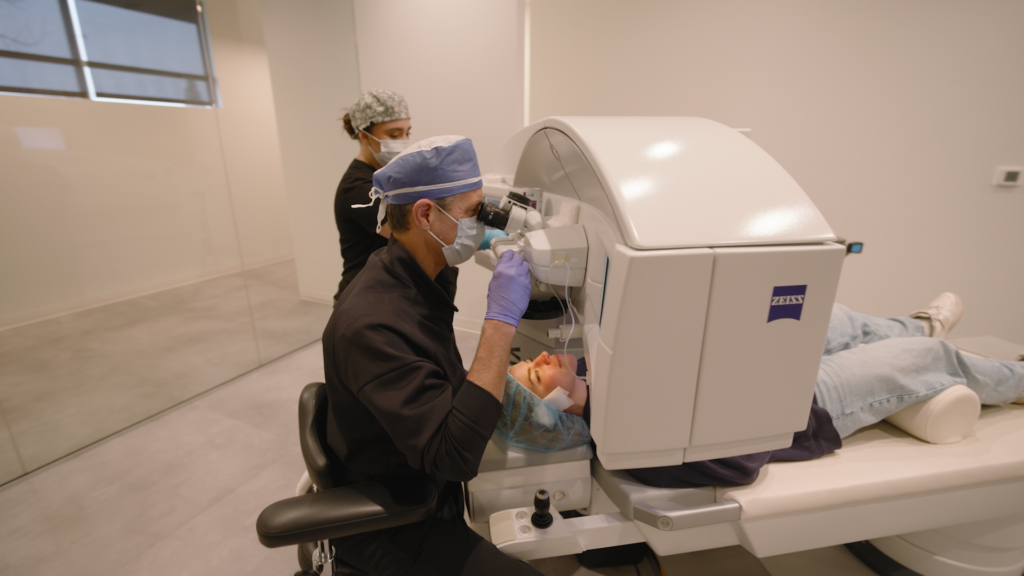
How Long Does the CLR Procedure Take?
Many patients are familiar with LASIK, a quick procedure that typically takes only minutes. So, they often wonder, “How long does CLR take?”
Dr. Koushik answers, “CLR takes about 10 minutes per eye, with both eyes typically done on the same day. From walking in to finishing both eyes, the total time is about 20 minutes.”
This means you can walk into the clinic, have the procedure done, and be done in less time than many people spend in a dentist’s office. The quickness of CLR, combined with its effectiveness, makes it an attractive option for those considering vision correction.
What Results Can I Expect from CLR?
The results of CLR are often the most exciting part for patients. The primary goal of the procedure is to correct all aspects of vision, including distance, intermediate, and near vision, without the need for glasses or contact lenses.
“CLR is a comprehensive solution,” says Dr. Koushik. “It not only corrects distance vision but also intermediate and near vision, which means you’ll be free from glasses for almost all tasks. It can even correct astigmatism.”
This vision correction is long-lasting and can significantly improve the quality of life for patients who no longer need to rely on corrective lenses for daily activities.
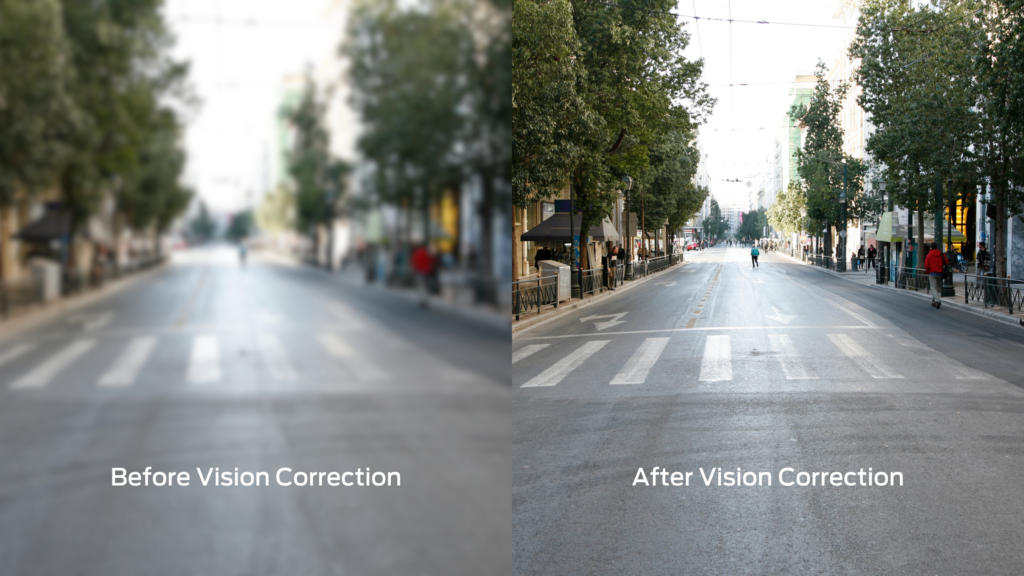
How Long Does CLR Last?
Another major concern for patients is the longevity of the results. After all, no one wants to go through surgery only to find that the results don’t last.
Dr. Koushik provides reassurance: “CLR results are permanent. The dysfunctional lens that caused your vision problems has been replaced with a custom lens, and that lens will not change. You won’t need another surgery to correct your vision in the future.”
The permanence of CLR results is one of the procedure’s greatest benefits. Once the natural lens is replaced with a custom lens, the correction is designed to last for a lifetime, meaning you can enjoy clear vision without the risk of your prescription changing over time.
Will I Need Another Surgery in the Future?
Given that some patients may have had corrective surgeries in the past, they often wonder if CLR will require future follow-up procedures if their prescription changes. Dr. Koushik’s answer is a definitive no.
“CLR is a one-time procedure,” he says. “You won’t need to undergo additional surgeries in the future because your prescription is now stable. The surgery is designed to permanently fix your vision, so you can enjoy life without worrying about further corrective procedures.”
This makes CLR an ideal solution for individuals who want long-term results without the concern of needing additional treatments down the line.
Do I Need Cataract Surgery After CLR?
An important question many patients ask is whether CLR will lead to the need for cataract surgery in the future. The answer is no.
Dr. Koushik explains, “Once the natural lens is replaced, you won’t develop cataracts because the lens that typically becomes a cataract has already been removed. CLR eliminates the risk of cataracts for good.”
So, not only does CLR provide excellent vision correction, but it also eliminates the need for cataract surgery later in life.

